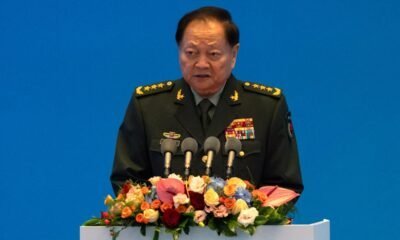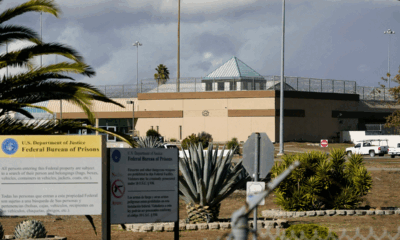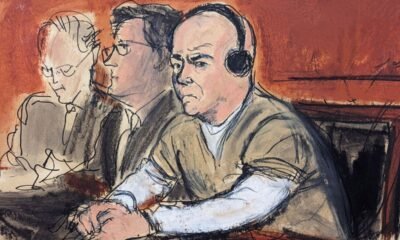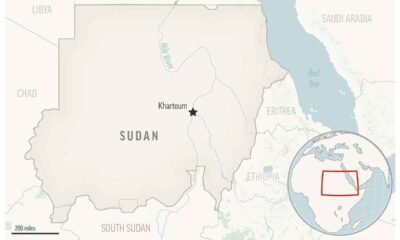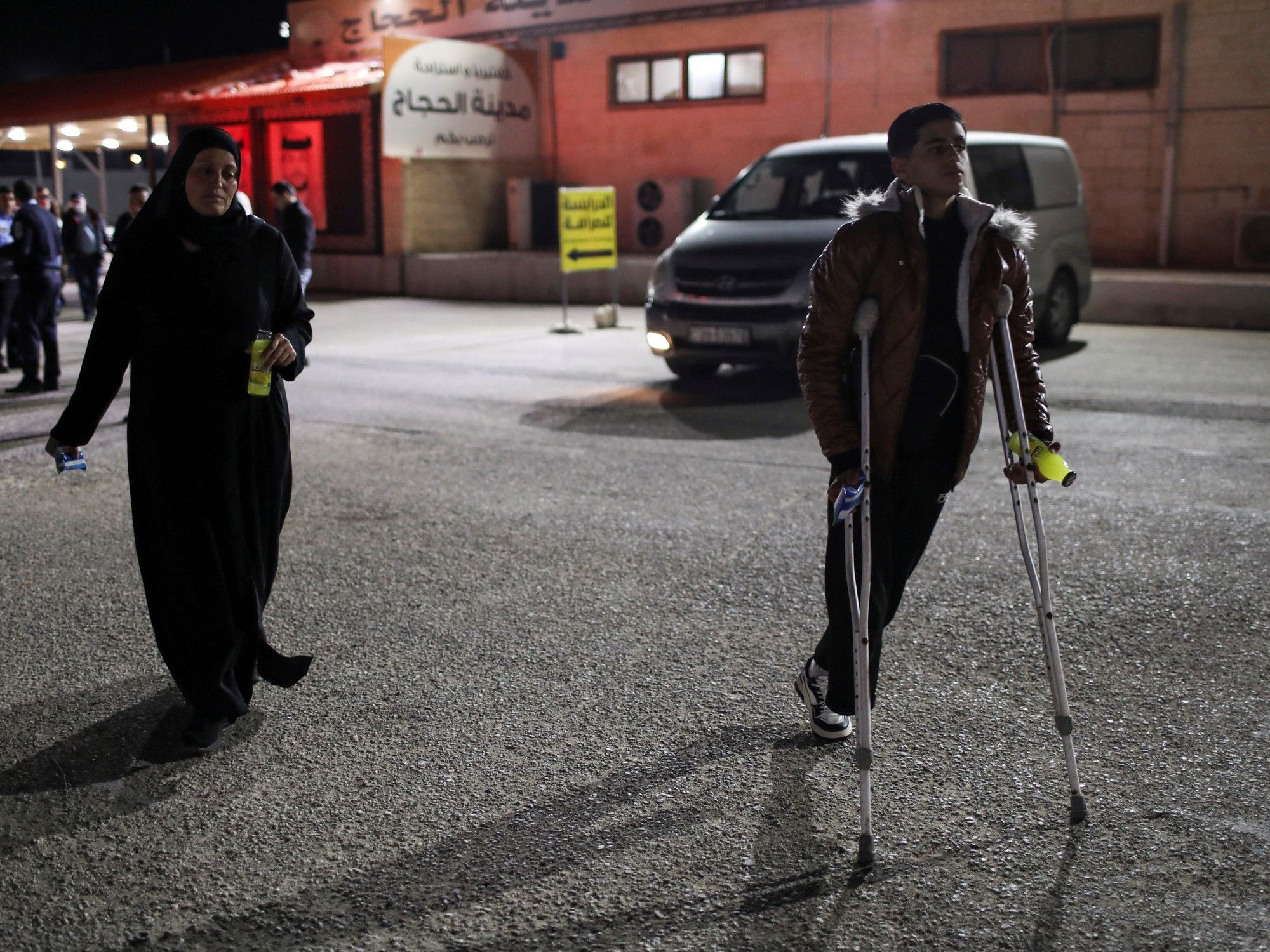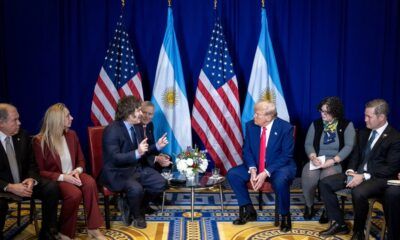INTERNACIONAL
Senegal’s opposition leader Ousmane Sonko to address supporters after months in prison
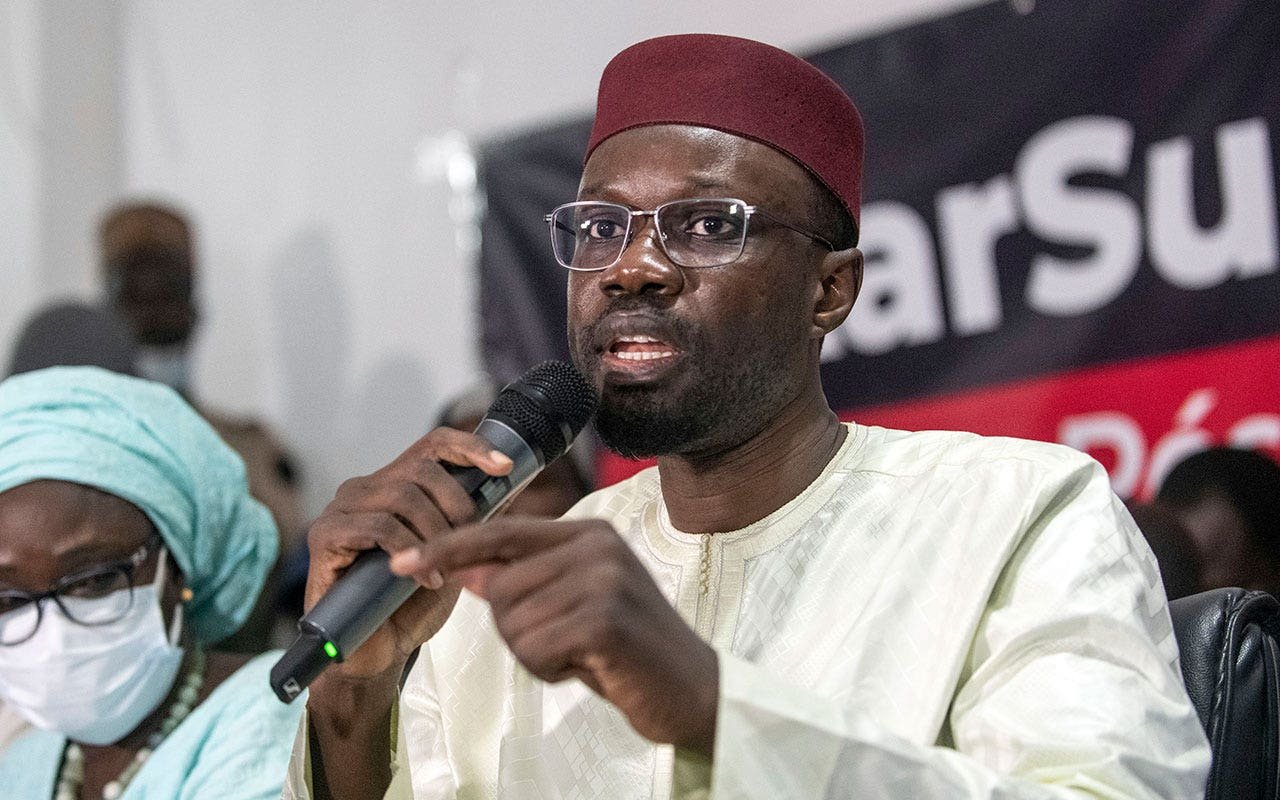
- Ousmane Sonko, Senegal’s top opposition leader, was released from prison ahead of the March 24 election but has been barred from running.
- Sonko’s release energized supporters, with thousands celebrating in Dakar.
- The court decision barring Sonko from the election cannot be appealed, according to a presidential spokesman.
Senegal’s top opposition leader was expected to address supporters on Friday in his first public speech, hours after being released from prison and ahead of the country’s March 24 election in which he has been barred from running.
Ousmane Sonko’s release late on Thursday night, after months behind bars, triggered a mix of jubilation and political uncertainty on the streets of the capital, Dakar. His supporters are waiting to see whether authorities will reverse their decision and allow him to run in the presidential race.
A charismatic former tax collector and mayor of the southern city of Ziguinchor, Sonko is seen as as the main challenger to President Macky Sall’s ruling party.
SENEGALESE OPPOSITION LEADER OUSMANE SONKO CONVICTED OF CORRUPTING YOUTH, ACQUITTED OF RAPE CHARGES
His key ally, Bassirou Diomaye Faye, who was also freed from prison late Thursday, has been named the opposition’s presidential candidate. Their release follows Sall’s decree to exonerate political prisoners, including hundreds that were arrested in the violent protests last year.
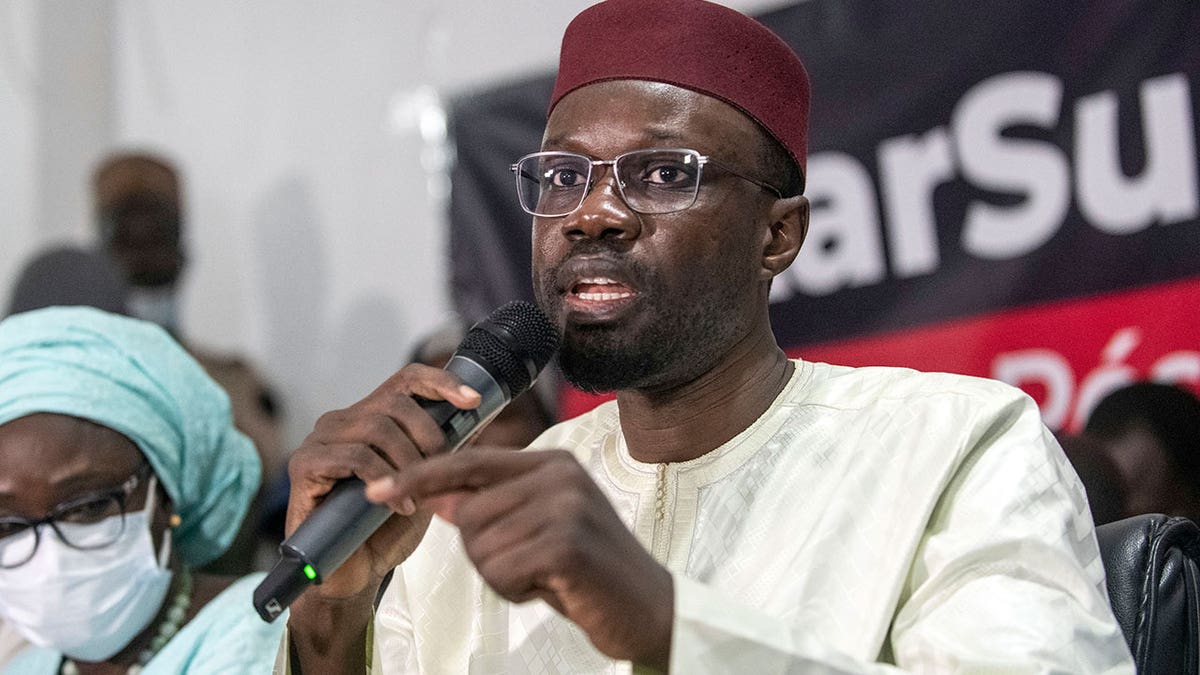
Senegalese opposition leader Ousmane Sonko addresses journalists following his release from police custody in Dakar, Senegal. Sonko, was released from jail late Thursday, March 14, 2024, ahead of the country’s presidential election scheduled for March 24, his lawyer said. (AP Photo/Sylvain Cherkaoui, File)
The protests have rocked Senegal’s image as a pillar of stability in West Africa, where dozens of coups and attempted coups have taken place in recent decades.
Dakar was thronged overnight with thousands of people singing and dancing as convoys of supporters drove around tooting horns and young people piled onto motorbikes and trucks.
Fresh graffiti on Dakar streets on Friday morning rallied in support of Sonko. On their way to work, Senegalese speculated about how the turn of events might impact the vote later this month.
However, presidential spokesman Yoro Dia said a court decision barring Sonko from the election could not be appealed.
Sall has tried to defend his decision to postpone the election just weeks before it was to take place on Feb. 25. His announcement that the vote would instead be held 10 months from now plunged Senegal into uncertainty and drew protesters to the streets again.
The country’s Constitutional Council subsequently rejected Sall’s postponement and ordered the government to set a new date as soon as possible.
Sonko’s release will boost Faye’s campaign but it won’t change expectations that the vote is probably headed for a runoff, said Tochi Eni-Kalu, Africa analyst at the Eurasia Group.
Neither will Sonko be allowed into the race at this late stage, Eni-Kalu said, adding that no candidate is expected to win more than 50% of the vote.
«For Sonko specifically, there remains some uncertainty over the terms of his amnesty and whether he will immediately regain his political rights,» the analyst said. «But he won’t be on the ballot on the 24th.»
In a separate decision on Friday, the Supreme Court rejected an appeal from Karim Wade, an opposition leader and son of former Senegalese President Abdoulaye Wade, against the decision to rule him out of the ballot because he holds dual citizenship.
TOP SENEGALESE OPPOSITION LEADER FREED FROM JAIL AS ELECTION NEARS
Wade said he has renounced his French citizenship.
Sonko’s presidential bid has faced a prolonged legal battle that started when he was accused of rape in 2021. He was acquitted of the charge but was convicted of corrupting youth and sentenced to two years in prison last summer, which ignited deadly protests across Senegal.
In January, he was disqualified from the ballot because he faces a six-month suspended sentence following his conviction for defamation, Senegal’s highest election authority, the Constitutional Council, said at the time.
Sonko’s supporters maintain his legal troubles are part of a government effort to derail his candidacy. His Patriots of Senegal party was also dissolved last summer.
Senegal’s 19 approved candidates have started rallying ahead of the vote, expected to be the most tightly contested race since the country gained independence more than six decades ago.
INTERNACIONAL
Giro en Oriente Medio: la Casa Blanca confirmó que Estados Unidos está en contacto con Hamas para poner fin a la guerra en Gaza y la entrega de rehenes
INTERNACIONAL
Dems’ response to ISIS leader arrest ‘disturbing,’ says father of Marine killed at Abbey Gate
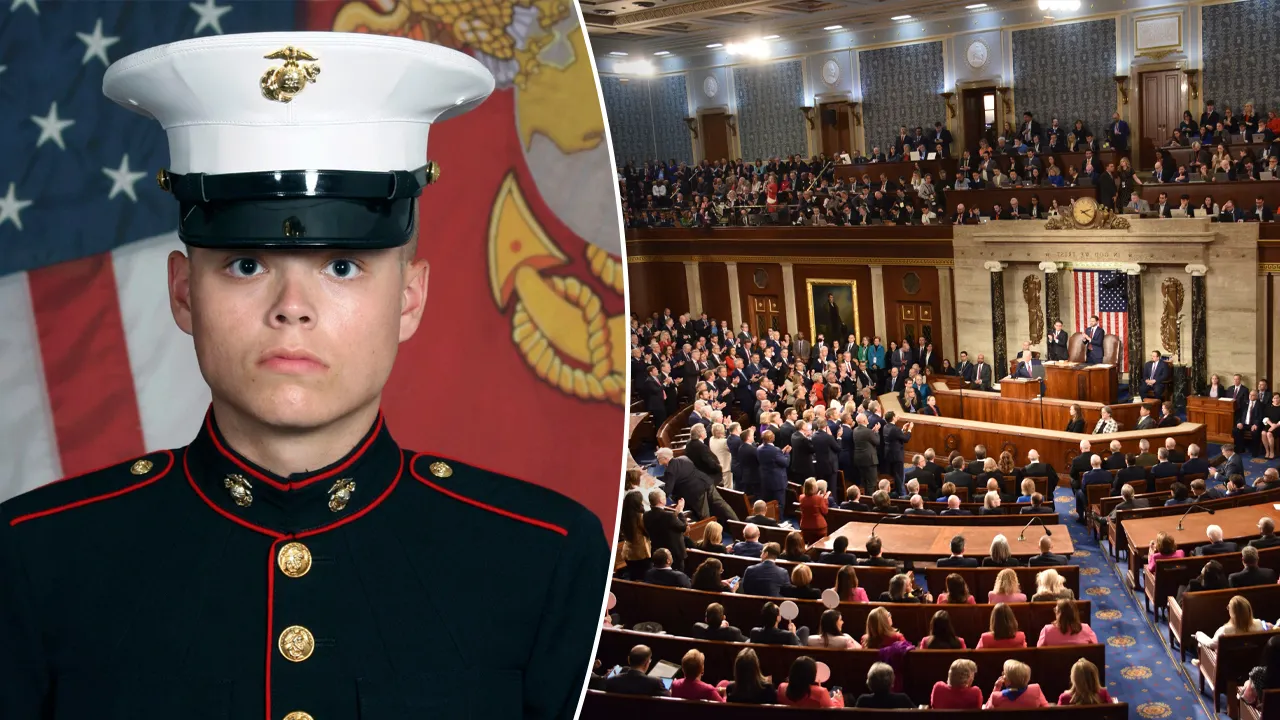
The father of Marine Lance Cpl. Jared Schmitz, who was killed along with 12 other American service members during the ISIS-K attack on Abbey Gate in Afghanistan on Aug. 26, 2021, said the Democrats’ reaction, or lack thereof, to the news that one of the masterminds behind the attack had been arrested was «disturbing.»
President Donald Trump used his address to Congress Tuesday night to announce the March 2 arrest of Mohmmad Sharifullah, who the Justice Department said helped plan the ISIS-K suicide bombing at the Kabul airport as Afghans fled the Taliban takeover.
«This should not be a partisan issue whatsoever – the death of our kids,» Mark Schmitz told Fox News Digital.
TRUMP REVEALS TOP TERRORIST BEHIND ABBEY GATE ATTACK APPREHENDED, FACING ‘SWIFT SWORD OF AMERICAN JUSTICE’
Gold Star father Mark Schmitz is seeking to honor his son Jared’s memory through a foundation to house veterans known as «Freedom 13» in honor of the 13 KIA on Aug. 26, 2021. (Mark Schmitz)
The attack resulted in the death of 13 U.S. service members as well as some 170 Afghan civilians.
But the news of the arrest was not met with a resounding approval across the political aisle. As Schmitz pointed out, only roughly a third of Democrats applauded the news, and none appeared to join their Republican colleagues in a standing ovation.
«You would think that every single person in that place would be standing up and applauding and cheering,» Schmitz said.
The father of the fallen Marine said the sight was «incredibly insulting as a Gold Star family.»
«This has got nothing to do with politics,» Schmitz continued. «This is our military we’re talking about, and that needs to change.»
Several family members of those slain in the chaotic withdrawal of Afghanistan took issue with President Joe Biden’s failure to mention their children killed in the line of duty while speaking from the House Chamber during any of his three addresses to Congress following the attack.
«There was no communication from the onset,» Schmitz said, reflecting on the controversial moment when the Gold Star families met Biden at Dover Air Force Base when the service members’ bodies were returned from Afghanistan.
ISIS-K MEMBER CONFESSED TO SCOUTING ABBEY GATE ATTACK ROUTE, TRAINING MOSCOW ATTACKERS: AFFIDAVIT
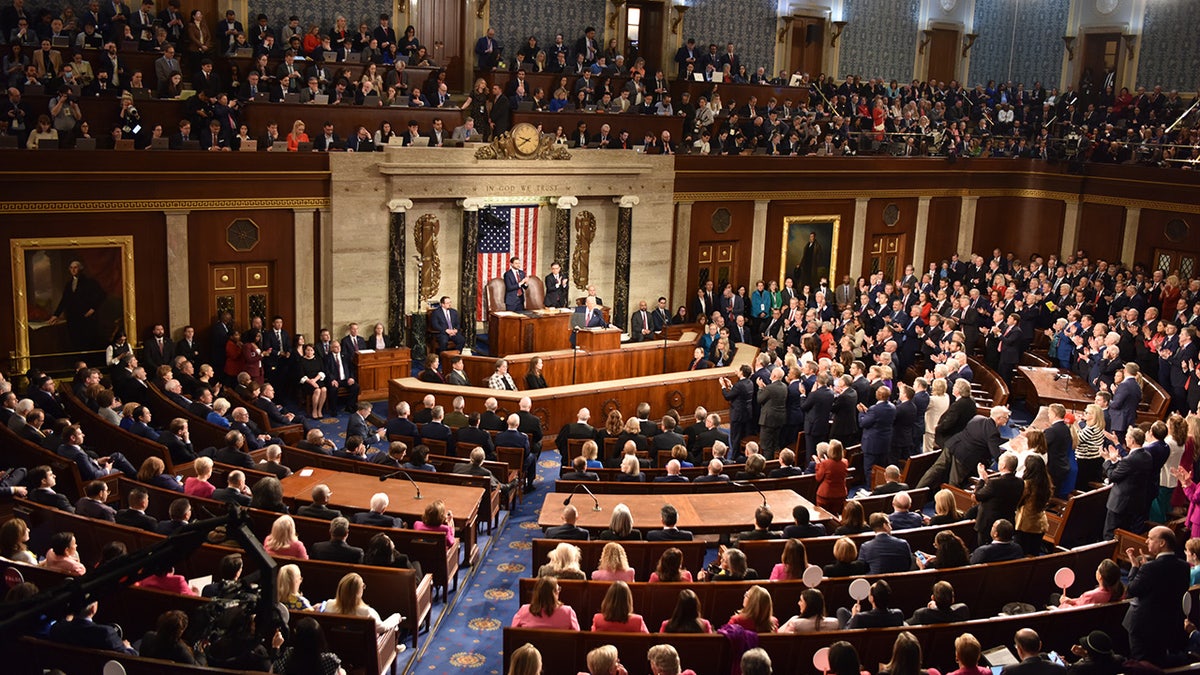
President Donald Trump addresses a joint session of Congress at the U.S. Capitol on March 4, 2025. Democrats remained seated throughout the night as Republicans stood to applaud the president. (Sha Hanting/China News Service/VCG via Getty Images)
Biden was criticized for repeatedly checking his watch and many of the families expressed frustration with the lack of transparency that led to the chaotic withdrawal, and ultimately the death of their loved ones.
«Any time you can start to get a little bit of closure is always a good thing,» Schmitz said in reference to the most recent ISIS-K arrest. «And to find out that they got this guy is amazing. There’s many more that need to be looked at – certainly he’s not the only one.
«This is one down and many more to go, but very, very confident that we’re going to start seeing some answers,» he added.
Schmitz has chosen to honor his son and the 12 other Americans killed that day by starting a nonprofit aimed at creating «freedom camps» for veterans under a project known as «The Freedom 13.»
The goal is to develop a camp in every state, starting with Jared’s home state of Missouri, where veterans can retreat to for a safe space to heal from their time in the service or to simply be around other veterans.
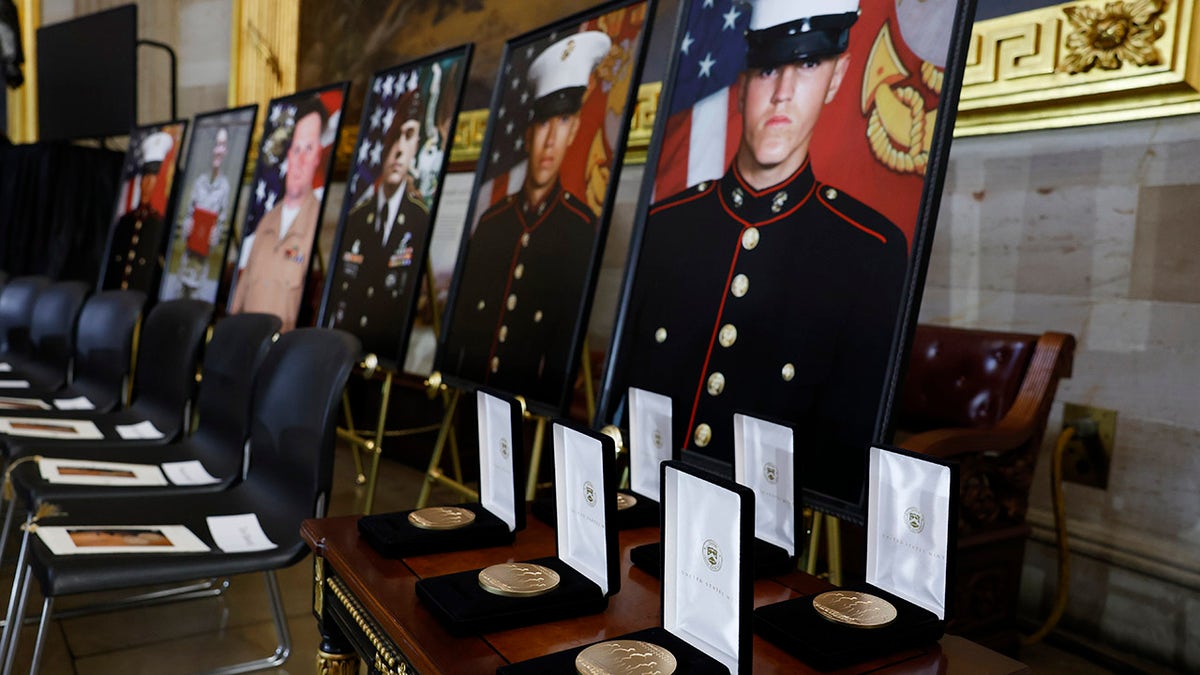
A ceremony honoring the 13 service members killed in the suicide bombing at Hamid Karzai International Airport in Afghanistan is held in the U.S. Capitol Rotunda on Sept. 10, 2024. (Anna Moneymaker/Getty Images)
CLICK HERE TO GET THE FOX NEWS APP
Each camp will consist of at least 100 acres and 13 houses, signifying the 13 service members killed in the attack.
While Schmitz has said they will need more support to help them develop more camps for veterans, he believes that, under the Trump administration, families at least now «have allies in our corner.»
INTERNACIONAL
Para Emmanuel Macron, «Rusia no parará en Ucrania y es una amenaza para Francia y Europa»
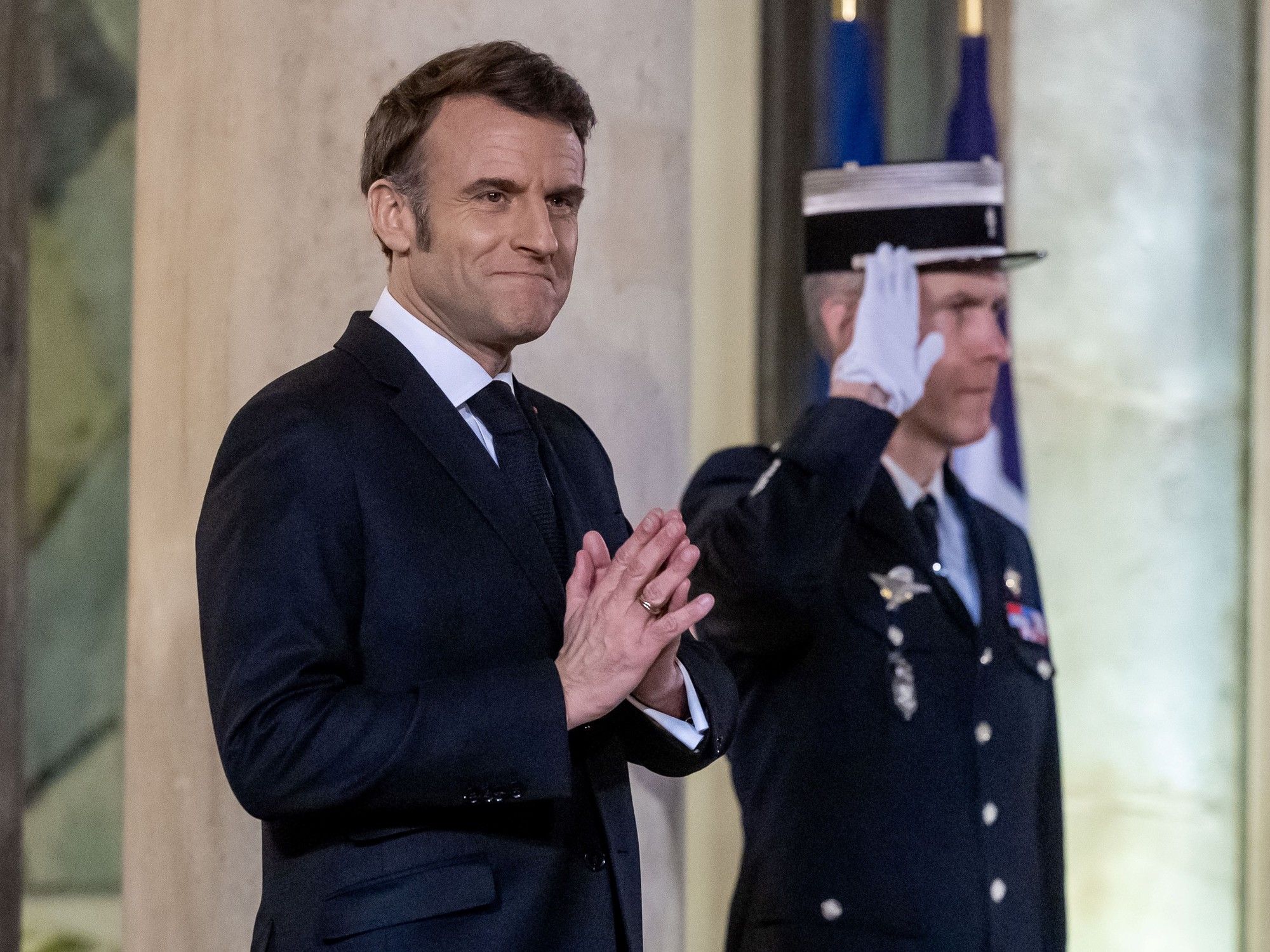
La amenaza rusa
La guerra en Ucrania
“Si EE.UU. no está de nuestro lado»
Los aranceles de Trump
-
POLITICA2 días ago
Javier Milei advirtió a Grupo Clarín que no autorizará la compra de Telefónica
-
ECONOMIA2 días ago
Expectativa por la reacción de Wall Street al anuncio de Milei del acuerdo con el FMI
-
POLITICA2 días ago
¿Es posible un tratado de libre comercio con EE.UU.?: pros y contras del plan que alienta Javier Milei

